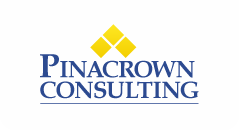The UK government has altered the tax law around buy-to-let investing considerably in the last few years. For some, it is possible to achieve a more favourable tax position by investing in rental property through a limited company. Here is a quick analysis of the pros and cons of investing in buy-to-lets through a limited company as opposed to being a private landlord.
Corporation tax vs income tax
Your tax position is the principal driver in determining whether you invest in buy-to-let property through a limited company. A number of taxes are involved so it can be a complicated decision. Bespoke advice is recommended.
When you own a buy-to-let as an individual you pay income tax on the rent you receive at your highest marginal rate. This could be as high as 45%. Previously you could claim tax relief on all of the mortgage interest, but this is no longer the case. Instead, you can claim a 20% tax credit against the mortgage interest. This is neutral for a basic rate taxpayer but far less generous to people who pay tax at a higher rate.
In a limited company you don’t pay personal income tax on the rent. You pay corporation tax on the company’s profits, and then you are subject to personal tax on the drawings from the company. There are a number of potential advantages to this.
First, corporation tax is currently 19% (in the 2021/22 tax year, although it is set to rise to as much as 25% for some companies in the future). Second, you can still deduct mortgage payments as a business expense.
Furthermore, with the limited company structure you can choose who the shareholders are, when and how to draw money. This gives you further control over when you incur the tax liability and at what rate: which is helpful for tax planning.
Capital gains tax and stamp duty
Other than your primary residence, any property which you own as an individual is subject to capital gains tax (CGT) rules. When you dispose of a property (normally by selling or gifting), this sees any gains taxed at up to 28% (in the 2021/22 tax year). However, everyone has an annual gains allowance which is tax free. This is currently £12,300.
There are a couple of separate issues to consider here. If you already own the property and put it into a limited company, this counts as a disposal and may incur a capital gains tax charge at this point. The company will then have to pay stamp duty on the transaction, too.
Once the property is in the limited company structure, it is no longer subject to capital gains tax or benefits from the tax-free allowance that individuals enjoy. Instead, as with the rental income, any gains are taxed as profit through corporation tax. This could work out better or worse for you. So it is important to investigate before deciding whether to set up a limited company.
A limited company structure can make it easier and cheaper to pass a portfolio on, say to others in your family. The company owns the property: so you do not need to dispose of the bricks and mortar, and thereby incur tax charges such as CGT outside the company, corporation tax inside the company or stamp duty. Instead, you change the shareholders of the company by vesting shares in whoever you want to own some of the portfolio.
Other considerations
Once you have weighed up whether a limited company structure would help your tax position, it is important to understand a few other considerations.
In their favour, limited companies give you certain legal protections should things go wrong, although lenders may still seek personal guarantees before advancing money.
However, there is more legal compliance which comes with running a limited company, including completing a corporation tax return, filing information with Companies House which is visible to the public, and having a business bank account. Not all lenders provide mortgages to limited companies and those that do tend to charge slightly higher rates.
We specialise in helping landlords, both as limited companies and as individual owners. We can help you determine what is best for you and take care of much of the admin and compliance. If you have a question or want to get started, please get in touch.
